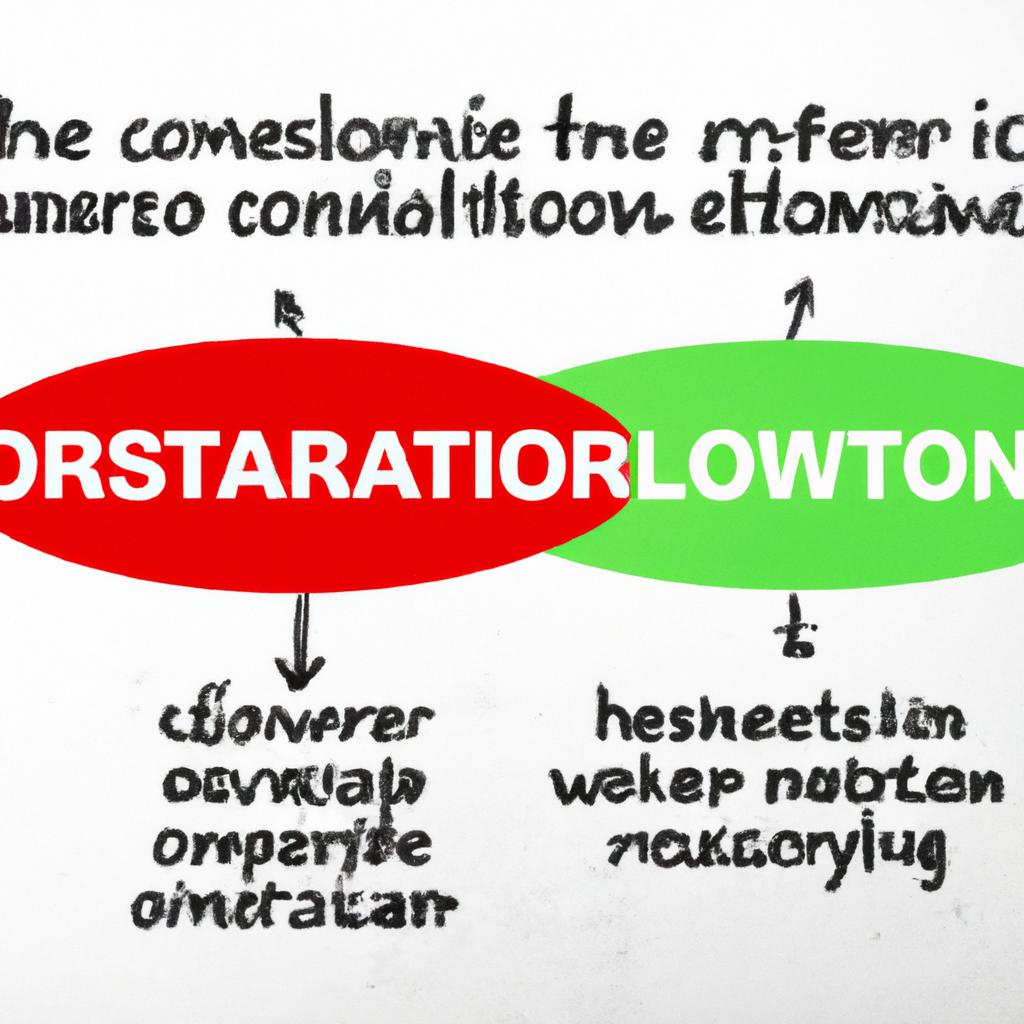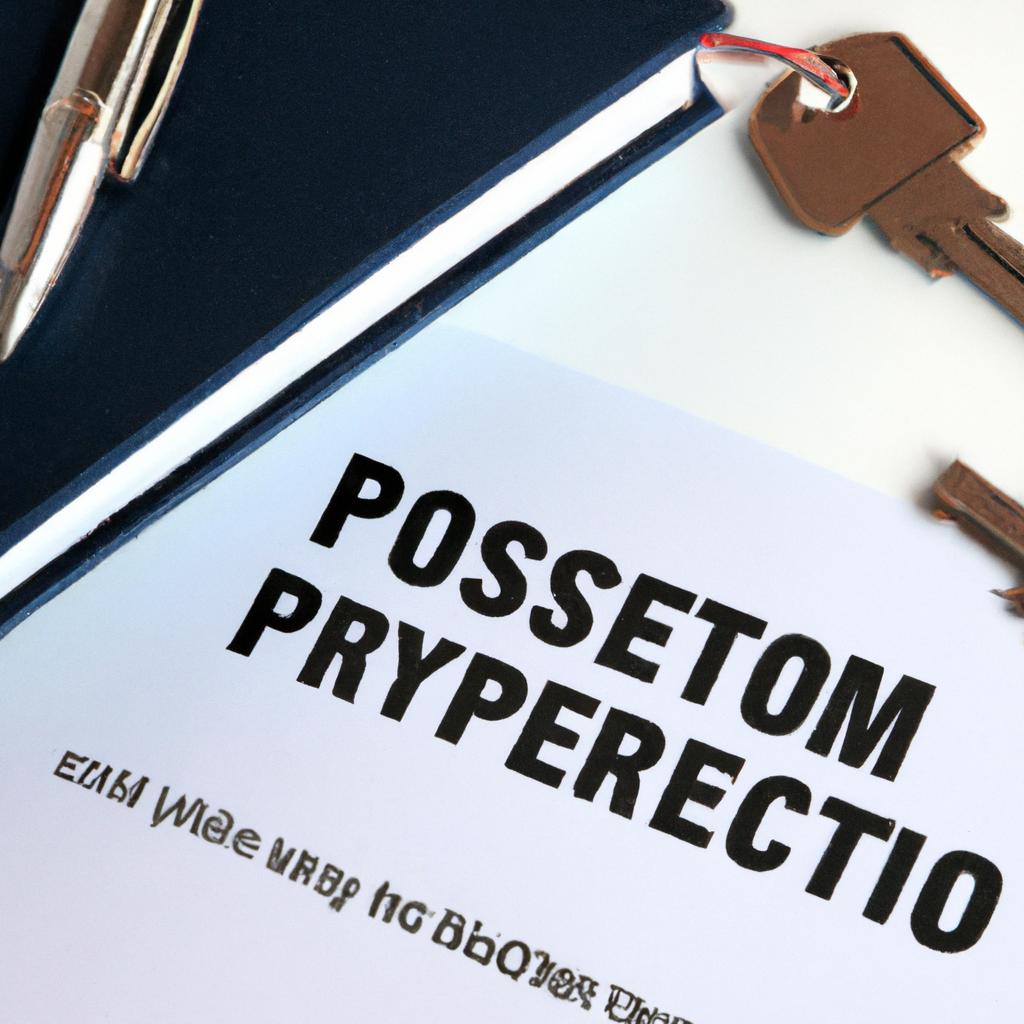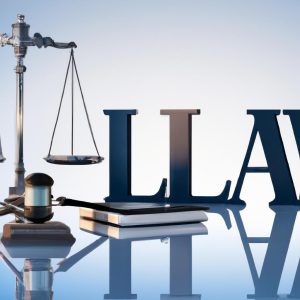It is a common misconception that having one’s name on the title of a house automatically signifies ownership. However, the legal nuances surrounding property ownership can be complex and require a keen understanding of the law. At Morgan Legal Group, located in the bustling city of New York, we specialize in estate planning, probate, elder law, Wills, and trusts – and we are here to shed light on the question: if your name is on the title of a house, do you truly own it? In this article, we will delve into the intricacies of property ownership and provide clarity on this often misunderstood topic.
– Understanding Legal Ownership: The Relationship Between Your Name on the Title and Ownership of a House
When your name is on the title of a house, it does indicate legal ownership of the property. However, it is essential to understand that ownership of a house is not solely determined by the name on the title. Various factors can affect ownership rights and responsibilities, which is why it is crucial to consult with a legal professional to ensure a clear understanding of your rights.
Being listed on the title of a house means you have certain legal rights and obligations regarding the property. These include the right to possess, use, and transfer the property, as well as the responsibility for taxes, insurance, and maintenance. It is important to carefully review the title documents and seek legal advice to clarify any questions or concerns regarding your ownership status and rights.

– Clarifying Rights and Responsibilities: Implications of Having Your Name on the Title of a Property
Ownership of a property goes beyond simply having your name on the title. While having your name on the title of a property indicates some level of ownership, it is essential to understand the implications of this legal document. The title of a property outlines the rights and responsibilities associated with ownership and can impact various aspects of your financial and legal matters.
When your name is on the title of a property, you may have:
- Legal rights to the property
- Financial obligations, such as mortgage payments
- Responsibilities for property taxes and maintenance

– Ensuring Proper Documentation: Key Steps to Protect Your Ownership Interest in a House
The ownership of a house is a serious matter that requires proper documentation to protect your interests. When your name is on the title of a house, it signifies that you have a legal claim to the property. To ensure that your ownership interest is secure, follow these key steps:
- Review the Title: Make sure your name is correctly listed on the title of the house.
- Keep Records: Maintain all documents related to the purchase, sale, and ownership of the house.
- Update Information: Notify the appropriate authorities of any changes to your name, address, or ownership status.
| Step | Description |
|---|---|
| Review the Title | Ensure your name is accurately recorded. |
| Keep Records | Maintain all relevant documents. |
| Update Information | Notify authorities of any changes. |
By following these steps and maintaining proper documentation, you can protect your ownership interest in a house and avoid any potential disputes in the future. At Morgan Legal Group, we specialize in estate planning and can provide expert guidance on how to safeguard your property rights. Contact us today for personalized legal assistance in New York City.

– Seeking Professional Assistance: The Importance of Consulting with Experienced Real Estate Attorneys for Title-related Matters
When it comes to the question of whether owning a house is contingent upon having your name on the title, the answer is not as straightforward as one might think. While being listed on the title of a property can indicate ownership, it does not necessarily mean sole ownership. There are various factors to consider, such as joint tenancy, tenancy in common, and community property laws that can affect ownership rights.
Consulting with experienced real estate attorneys is crucial when dealing with title-related matters to ensure that your ownership rights are protected. These professionals have the expertise to navigate complex legal issues, conduct thorough title searches, and provide valuable advice on how to proceed in situations where ownership may be in dispute. By seeking professional assistance, you can avoid costly mistakes and safeguard your interests in real estate transactions.
Q&A
Q: If my name is on the title of a house, do I own it?
A: The short answer is yes, but there are some important nuances to consider.
Q: Can someone else be on the title of the house with me?
A: Yes, co-owners can be listed on the title of a house, each having legal ownership of the property.
Q: What if my name is on the title, but I didn’t contribute financially to the purchase of the house?
A: Ownership on the title typically implies legal ownership, regardless of who contributed financially to the purchase.
Q: What rights do I have if my name is on the title of a house?
A: As a title holder, you have the right to live in the house, sell it, rent it out, or transfer ownership.
Q: Can I be on the title of a house without actually owning it?
A: It is possible to be listed on the title without actually having any ownership rights, so it’s important to clarify your ownership status.
Key Takeaways
In conclusion, understanding the legalities of property ownership and the implications of having your name on the title of a house is crucial in protecting your rights and interests. Whether you are a sole owner or a joint owner, it is important to know your rights and responsibilities. Keep in mind that owning a home is not just about having your name on the title, but also about maintaining and caring for your property. So, ensure you are well-informed and seek legal advice if needed to navigate the complexities of property ownership. Remember, owning a home is a significant investment, so it is essential to protect it wisely.
 If your name is on the title of a house, it is only natural to assume that you are the owner of that house. However, things may not always be as straightforward as they seem. The ownership of a property is a complex issue, and there are many factors to consider when determining who truly owns a house. In this article, we will explore the question of whether or not owning your name on the title of a house means that you legally own it. We will also provide valuable information and practical tips to help you better understand your ownership rights and protect your investment in a property.
If your name is on the title of a house, it is only natural to assume that you are the owner of that house. However, things may not always be as straightforward as they seem. The ownership of a property is a complex issue, and there are many factors to consider when determining who truly owns a house. In this article, we will explore the question of whether or not owning your name on the title of a house means that you legally own it. We will also provide valuable information and practical tips to help you better understand your ownership rights and protect your investment in a property.
Understanding Property Titles and Ownership
Before we dive into the question at hand, let’s first understand what a property title is and how it relates to ownership. A property title is a legal document that proves ownership of a property. It includes details such as the owner’s name, the address of the property, and any legal restrictions or encumbrances on the property. Property titles are typically registered and kept on file with the local government’s land registry office.
When it comes to property ownership, there are two types of titles: sole ownership and joint ownership. Sole ownership means that one person owns the property entirely, while joint ownership means that two or more people own the property together. In the case of joint ownership, there are two types: joint tenants and tenants in common.
In joint tenancy, all owners have an equal share of the property and must agree on any decisions regarding the property. In tenants in common, each owner has a specific share of the property, and their portion can be passed on to their heirs upon their death. Understanding the type of ownership is crucial when it comes to determining your rights as an owner.
Do You Own the House if Your Name is on the Title?
Now that we have a basic understanding of property titles and ownership, let’s address the question at hand: if your name is on the title of a house, do you truly own it? The short answer is yes, but there are a few things to consider.
If you are the sole owner of a property, then having your name on the title means that you have full legal ownership of the property. This applies to both real estate and personal property, such as a car. However, if you are part of a joint ownership, then your rights and ownership may be a little more complex. Let’s take a closer look at how joint ownership can impact your rights as an owner.
Joint Ownership and Your Rights
As mentioned earlier, joint ownership can vary in terms of the ownership structure and decision-making process. In a joint tenancy, all owners have an equal share in the property. This means that each owner has the legal right to use and enjoy the property without restrictions. In the case of tenants in common, each owner has a specific share of the property that can be divided and transferred without the consent of the other owners.
However, regardless of the type of joint ownership, all owners must abide by the conditions and restrictions outlined in the title. This means that any decisions regarding the property, such as selling or refinancing, must be agreed upon by all owners. If there is a disagreement, one owner can apply for a court order to resolve the dispute. Therefore, it is crucial to discuss and agree on ownership rights and responsibilities before purchasing a property with other individuals or entities.
Practical Tips for Protecting Your Investment
Now that we have established that having your name on the title of a house means that you own it, let’s look at some practical tips to help protect your investment.
1. Understand the Title
Before purchasing a property, make sure to carefully review the title and associated documents with a lawyer. This will ensure that you understand the type of ownership, any restrictions, and your rights as an owner.
2. Discuss Ownership Rights
If purchasing a property with others, have a clear and thorough discussion about ownership rights and responsibilities. This will help avoid disputes and misunderstandings in the future.
3. Keep Records and Paperwork
Make sure to keep all documents relating to your property, such as contracts, deeds, and surveys, in a safe place. These documents will be crucial in proving your ownership if there are any disputes or legal issues.
4. Get Title Insurance
Title insurance protects both buyers and lenders against any potential legal disputes or title defects. It is a one-time cost that provides long-term coverage and peace of mind.
First Hand Experience
To truly understand the importance of having your name on the title when it comes to property ownership, we spoke to John, a real estate investor. When asked about his experience with property titles, John shared, “When I first started investing in real estate, I thought that having my name on the title was enough to prove that I owned a property. However, after working with a lawyer, I realized the importance of understanding the type of ownership and any potential restrictions on the property. It has helped me make informed decisions and protect my investments.”
In Conclusion
Having your name on the title of a house does mean that you legally own it. However, if you are part of a joint ownership, it is essential to understand your rights and responsibilities as an owner. By following the practical tips mentioned in this article, you can better protect your investment and avoid any potential disputes in the future. Make sure to consult with a legal professional for any specific questions or concerns regarding property ownership and titles.





